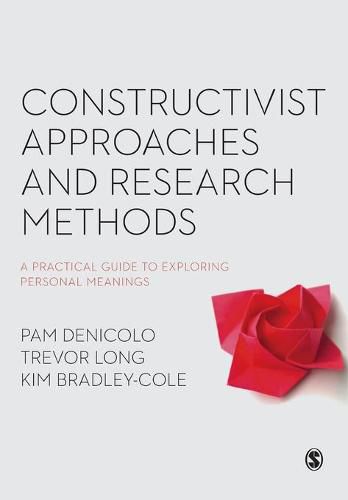Readings Newsletter
Become a Readings Member to make your shopping experience even easier.
Sign in or sign up for free!
You’re not far away from qualifying for FREE standard shipping within Australia
You’ve qualified for FREE standard shipping within Australia
The cart is loading…






This book provides a comprehensive overview of personal construct psychology (PCP) that will help researchers understand the why’s, what’s and how’s of conducting a rigorous constructivist research project.
From the theoretical underpinnings of constructivist approaches to the practical values of these techniques, these three expert authors explain how to conduct interpretative, constructivist research from inception to completion. Key topics include:
Understanding research philosophies and paradigms Constructing and exploring personal realities Establishing effective research procedures Evaluating grids, mapping, narrative and other research methods Managing the practicalities of fieldwork Analysing and presenting data
With activities and procedural examples from a wide range of disciplines woven throughout the text and two special chapters featuring in-depth case studies from a variety of constructivist researchers, this book helps readers grasp the tools, designs, and opportunities of interpretative research.
An essential companion for both researchers and practitioners looking to understand people’s values, attitudes, beliefs, perceptions, or motivations!
$9.00 standard shipping within Australia
FREE standard shipping within Australia for orders over $100.00
Express & International shipping calculated at checkout
This book provides a comprehensive overview of personal construct psychology (PCP) that will help researchers understand the why’s, what’s and how’s of conducting a rigorous constructivist research project.
From the theoretical underpinnings of constructivist approaches to the practical values of these techniques, these three expert authors explain how to conduct interpretative, constructivist research from inception to completion. Key topics include:
Understanding research philosophies and paradigms Constructing and exploring personal realities Establishing effective research procedures Evaluating grids, mapping, narrative and other research methods Managing the practicalities of fieldwork Analysing and presenting data
With activities and procedural examples from a wide range of disciplines woven throughout the text and two special chapters featuring in-depth case studies from a variety of constructivist researchers, this book helps readers grasp the tools, designs, and opportunities of interpretative research.
An essential companion for both researchers and practitioners looking to understand people’s values, attitudes, beliefs, perceptions, or motivations!